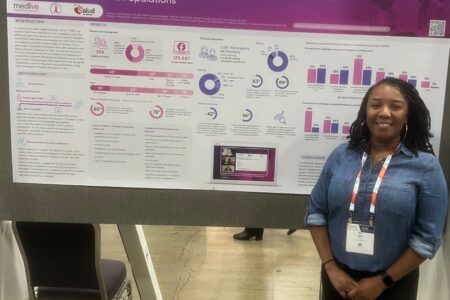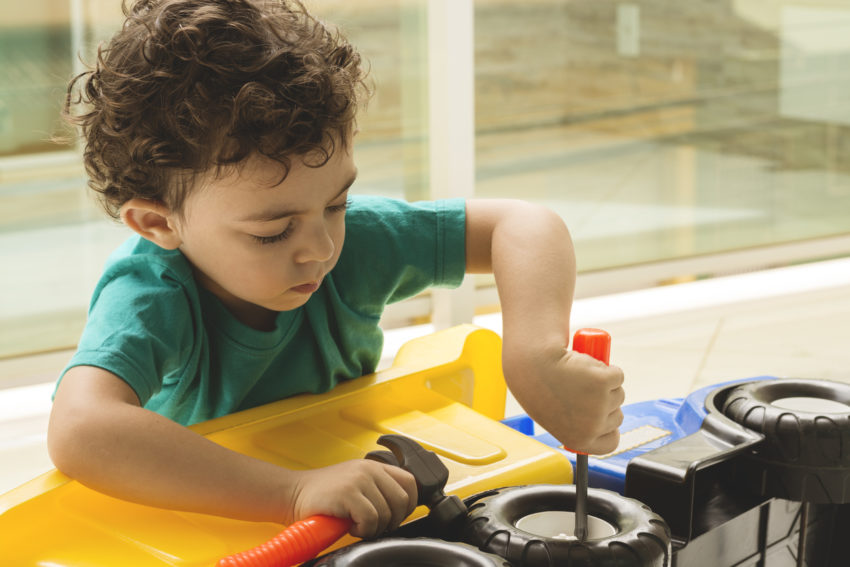
Share On Social!
This is part of the Salud America! The State of Latino Early Childhood Development: A Research Review »
Conclusions
Latino children are at increased risk of poor outcomes in many areas of early childhood development.
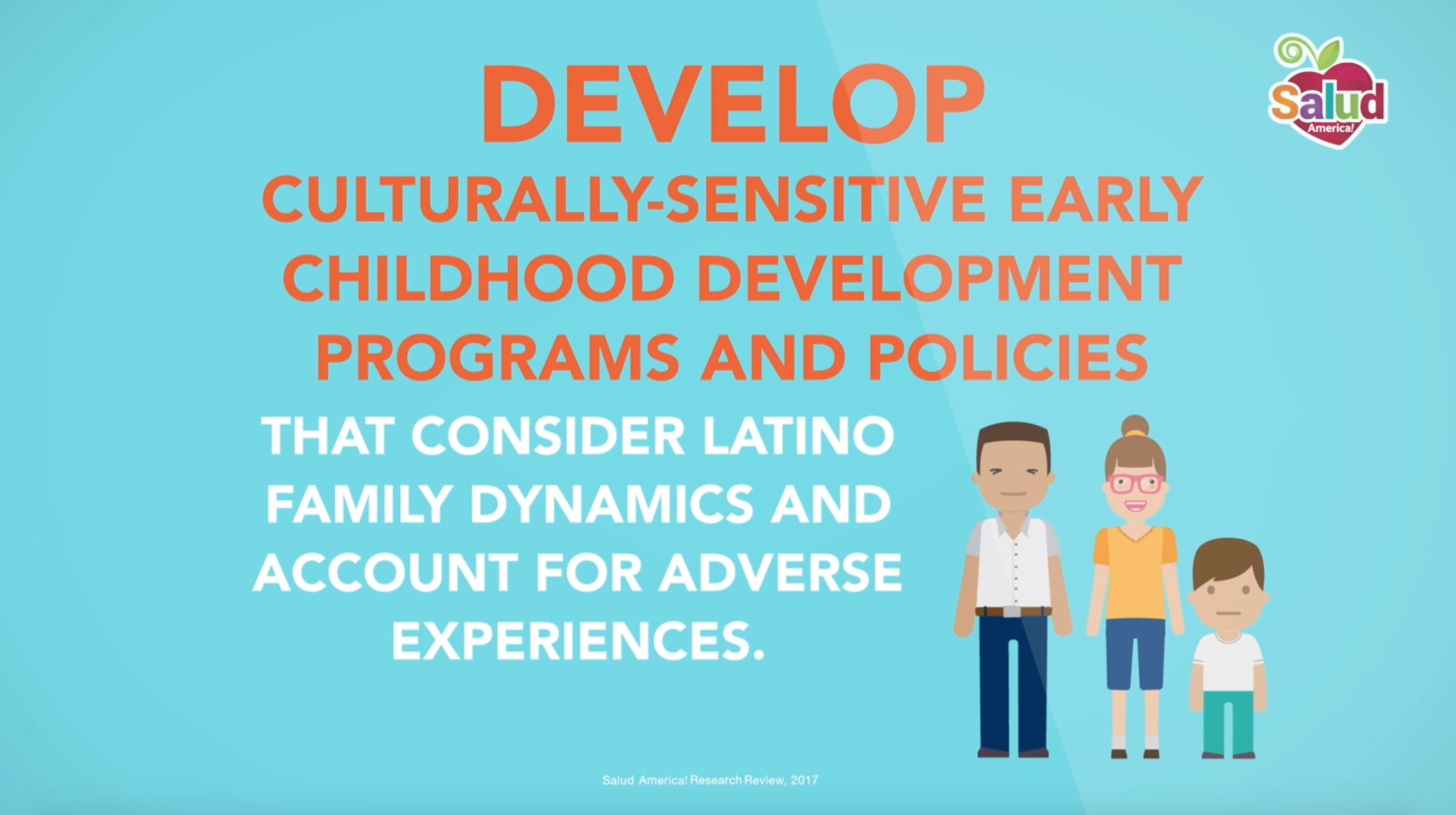 Factors such as socioeconomic status, parenting behaviors, family structure and environment, childhood experiences, and access to early education programs and health services can influence many aspects of child development. High-quality preschool programs, parent-directed support and education, and family-, school- and community-based programs have all been shown to improve developmental outcomes in Latino children. Preventing, identifying, and helping children and families overcome ACEs can impact a child’s social emotional development and chances of school success. Additional resources are needed to develop new, culturally appropriate programs and policies and/or improve upon those already in place, to further support Latino children in their formative years and beyond.
Factors such as socioeconomic status, parenting behaviors, family structure and environment, childhood experiences, and access to early education programs and health services can influence many aspects of child development. High-quality preschool programs, parent-directed support and education, and family-, school- and community-based programs have all been shown to improve developmental outcomes in Latino children. Preventing, identifying, and helping children and families overcome ACEs can impact a child’s social emotional development and chances of school success. Additional resources are needed to develop new, culturally appropriate programs and policies and/or improve upon those already in place, to further support Latino children in their formative years and beyond.
Policy Implications
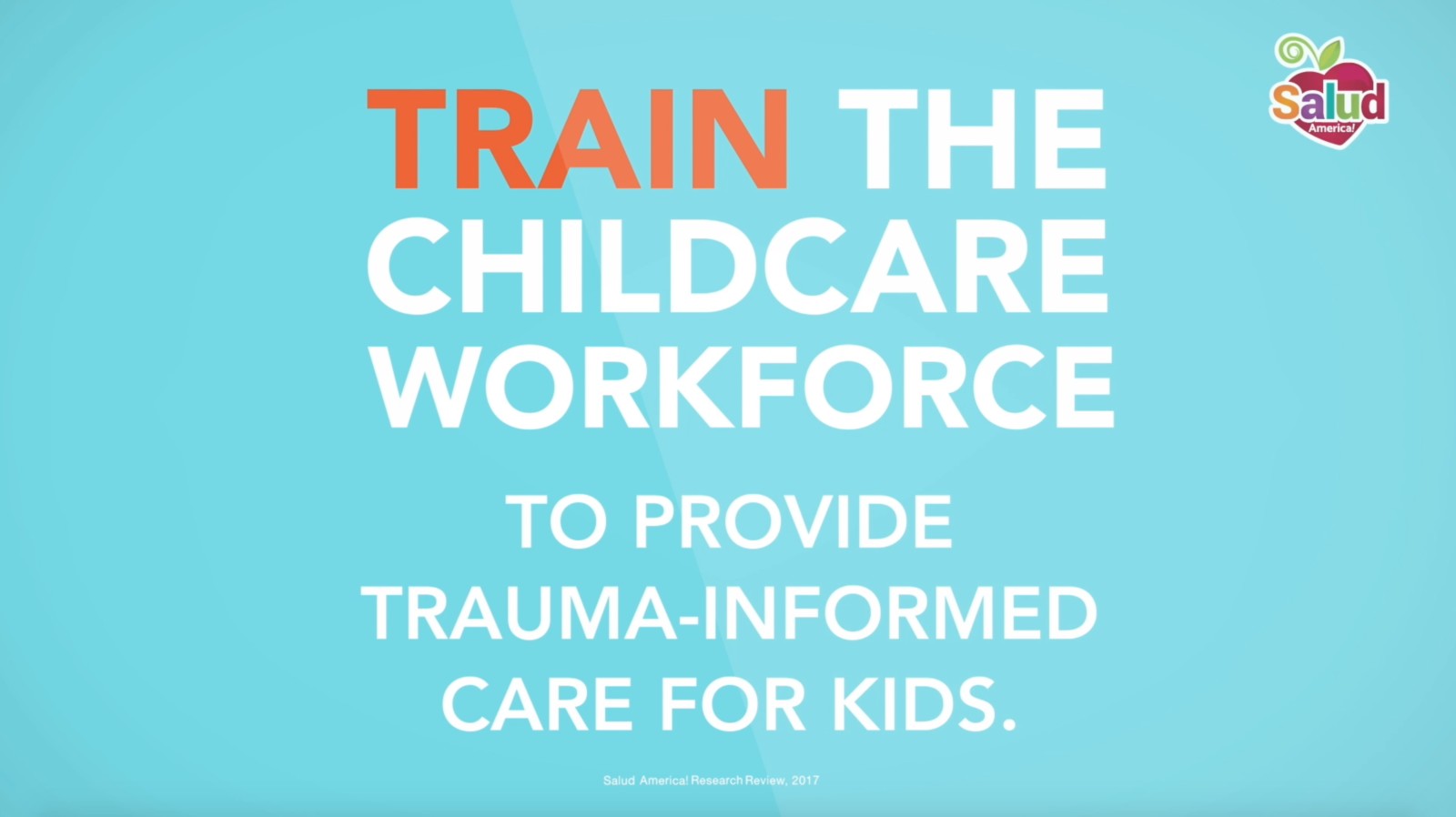 To address adverse childhood experiences (ACEs) among Latino children:
To address adverse childhood experiences (ACEs) among Latino children:
- Improve access to home visits for Latino families by engaging community advocates, civil rights organizations, and other stakeholders who understand the needs in their communities; ensure that home visit programs are equitable and culturally sensitive to the needs of Latinos.
- Strengthen the childcare workforce through training to provide trauma-informed care for ACEs.
- Increase awareness of and support for the medical home system of care for Latino children that can help to identify and address ACEs and other health-related issues early.
- Increase collaboration between child welfare agencies and early intervention programs to provide mental health services to children experiencing difficulties due to ACEs.
- Develop culturally sensitive programs, policies and interventions considering Latino family structure and dynamics.
- Allocate funding for early-life interventions including prenatal care and parent education and support to prevent ACEs in at-risk families.
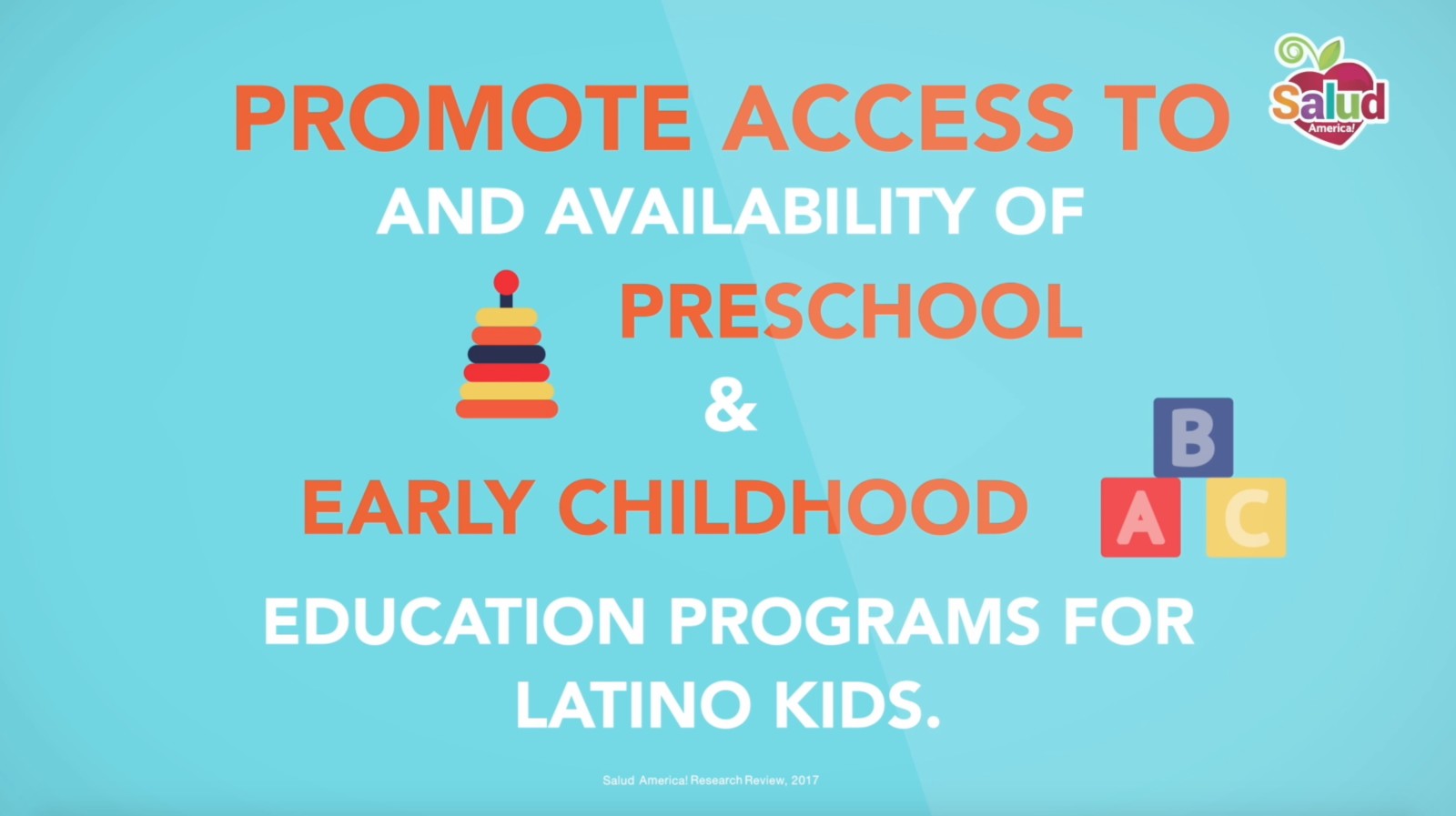 To extend the benefits of early care and education (ECE) and preschool programs:
To extend the benefits of early care and education (ECE) and preschool programs:
- Promote access to and availability and awareness of preschool and early childhood education programs, especially for Latino children given the lower participation rates, to better address the cognitive gaps prevalent in this group.
- Incorporate culturally-relevant parent counseling, education, and support into all preschool programs.
- Reduce classroom sizes to promote greater teacher-student interaction and individualized education.
- Implement culturally-sensitive teacher education and training, especially targeted to overcoming poor school readiness among Latino children.
- Increase parent involvement in classrooms and home visits by educators to ensure reinforcement of preliteracy activities in the home.
- Ensure that at least one Spanish-speaking educator is present at preschools teaching Latino children.
- Support adoption of school design strategies to support active transport and increased student physical activity throughout the school day, such as outdoor learning environments or green schoolyards.
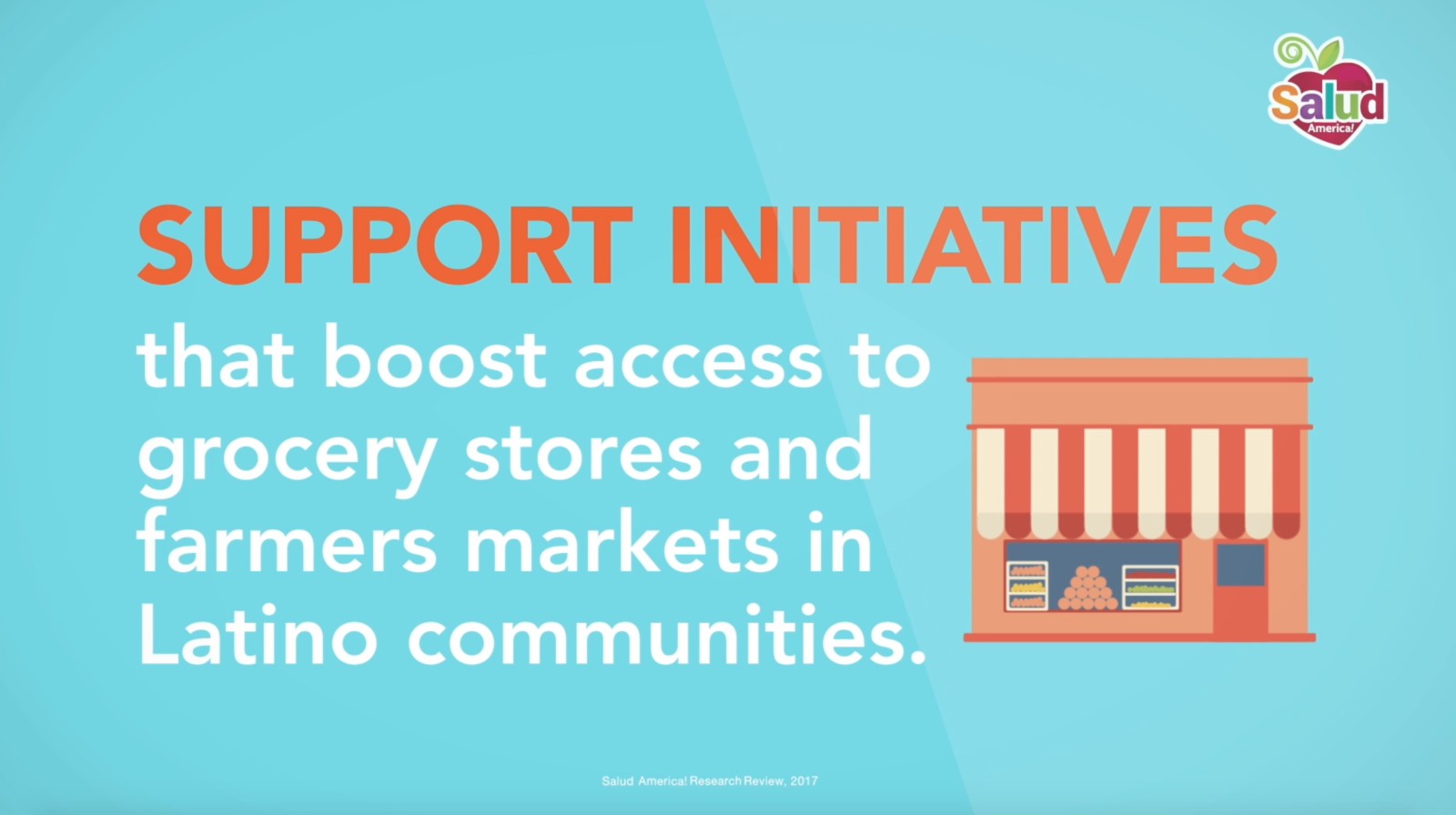 To improve Latinos’ access to healthy food:
To improve Latinos’ access to healthy food:
- Allocate funding to support community-based initiatives that improve access to grocery stores, health food stores, and farmers’ markets in Latino communities.
- Partner with farmers’ markets to develop long-term strategies for improving access to fresh fruits and vegetables in Latino communities.
- Increase access to culturally-appropriate healthy eating interventions and educational programs or activities (i.e., gardening) for Latino children and their families.
- Improve Latinos’ access to school-, community-, and government-based food programs.
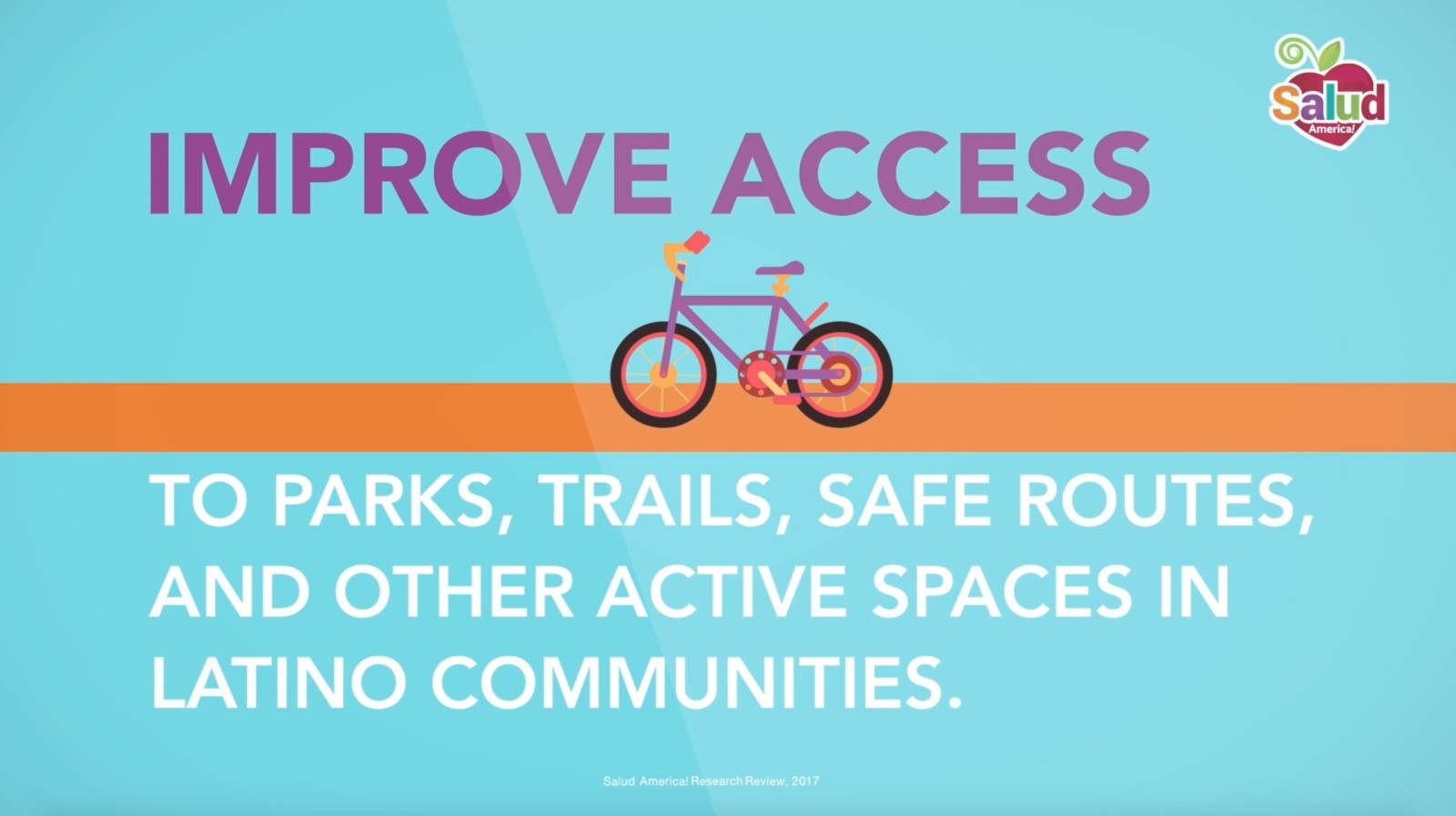 To increase Latinos’ access to physical activity spaces and opportunities:
To increase Latinos’ access to physical activity spaces and opportunities:
- Improve access to active spaces (parks, trails, green space, recreation sites) in Latino communities.
- Solicit community feedback to strengthen the development of new recreation sites and improvements in the built environment.
- Implement Complete Streets transportation projects near affordable housing, schools, grocery stores, and recreation sites to improve active travel to those sites.
- Construct affordable housing near public transit, employment centers, schools, grocery stores, and parks.
- Improve outdoor learning environments and green schoolyards at childcare centers and schools.
- Integrate considerations for non-motorized travel and public health into formalized planning processes, such as master plans, comprehensive plans, zoning code updates, housing and commercial developments, metropolitan planning organizations’ (MPO) transportation improvement project lists, trail plans, and regional transportation plans, with specific focus on improving environments in low-income communities.
- Reform transportation spending at all levels to tie it to larger goals for health, safety, equity, and the environment—rather than to a focus only on traffic volumes and speeds.
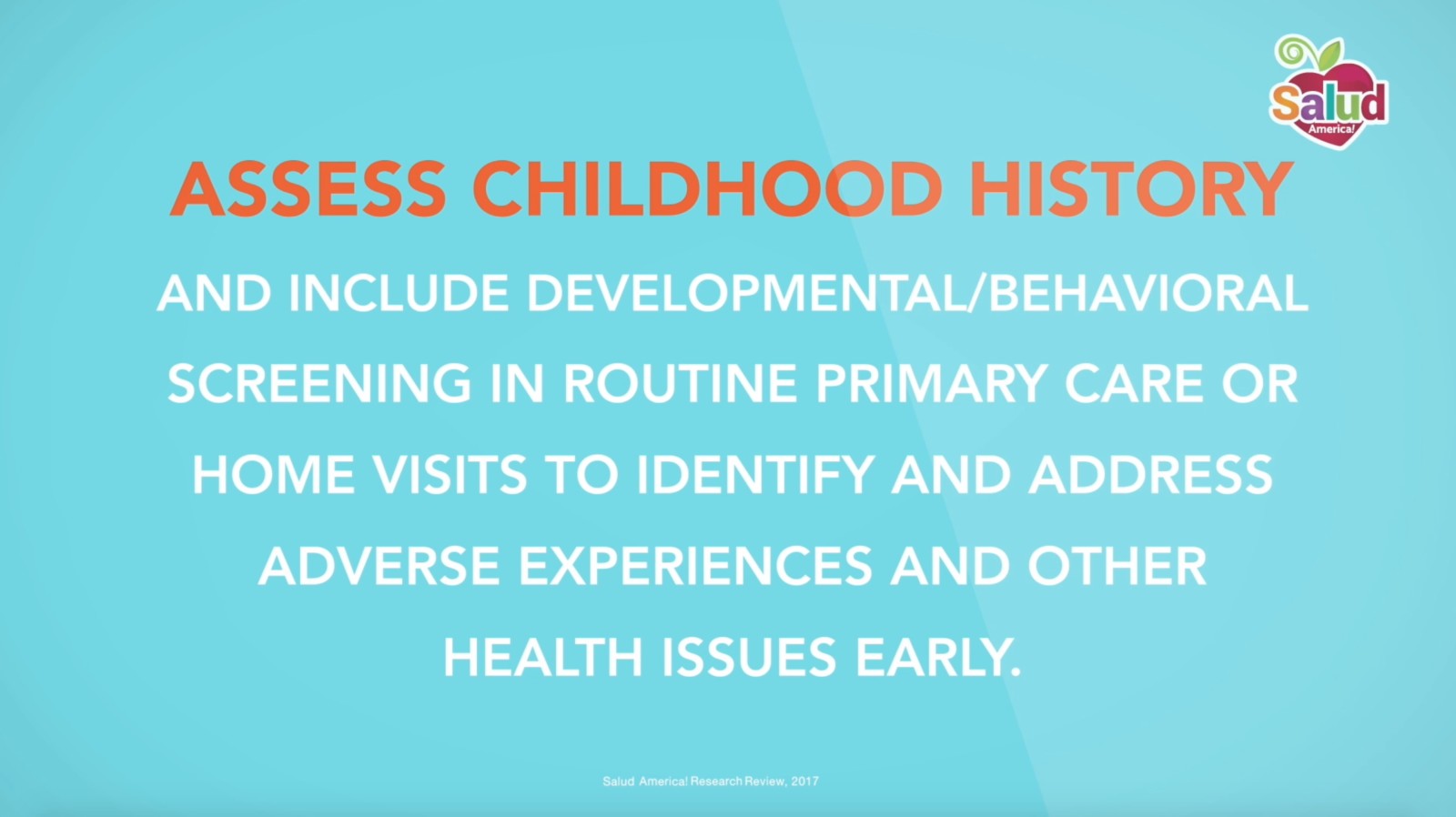 To improve Latinos’ healthcare access:
To improve Latinos’ healthcare access:
- Incorporate assessment of patients’ childhood history in routine primary care visits to aid in the identification of presence or risk of ACEs, and implement culturally and linguistically relevant interventions.
- Advocate for early developmental-behavioral surveillance and screening, according to the American Academy of Pediatrics recommendations.
- Provide home visiting to ensure parents and caregivers have the time, knowledge, and resources needed to ensure proper childhood development.
- Incorporate physical activity as a patient “vital sign.”
- Support the capacity of school-based health clinics and programs to promote healthy eating and physical activity.
More from our The State of Latino Early Childhood Development: A Research Review »
- Introduction & Methods
- Key Research Finding: Latino Childhood Trauma
- Key Research Finding: Healthy Lifestyles
- Key Research Finding: Early Care and Education
- Key Research Finding: Strategy—Improve Early Care
- Key Research Finding: Strategy—Boost School Readiness
- Key Research Finding: Strategy—Reduce Childhood Trauma
- Key Research Finding: Strategy—Incorporate Family Values
- Key Research Finding: Strategy—Support Moms
- Policy Implications
- Future Research Needs
References for this section »
None
Explore More:
Healthy Families & SchoolsBy The Numbers
142
Percent
Expected rise in Latino cancer cases in coming years


